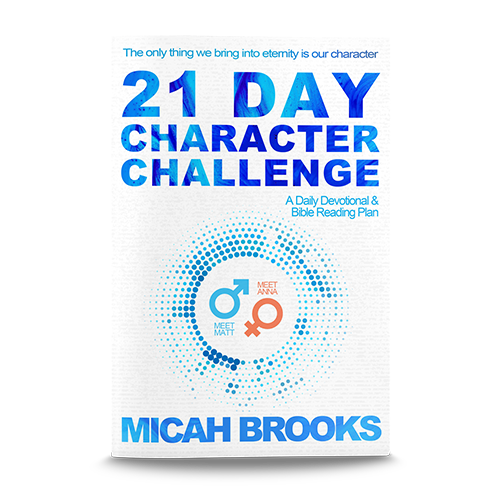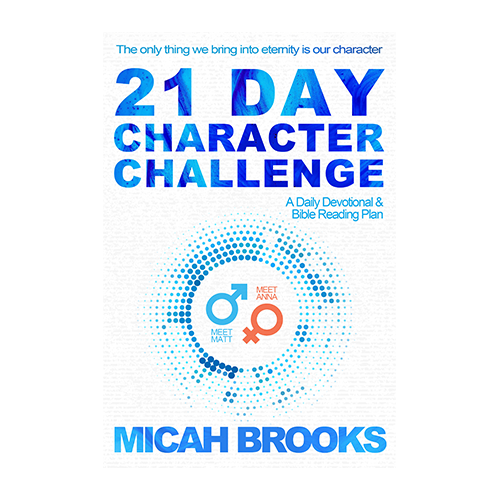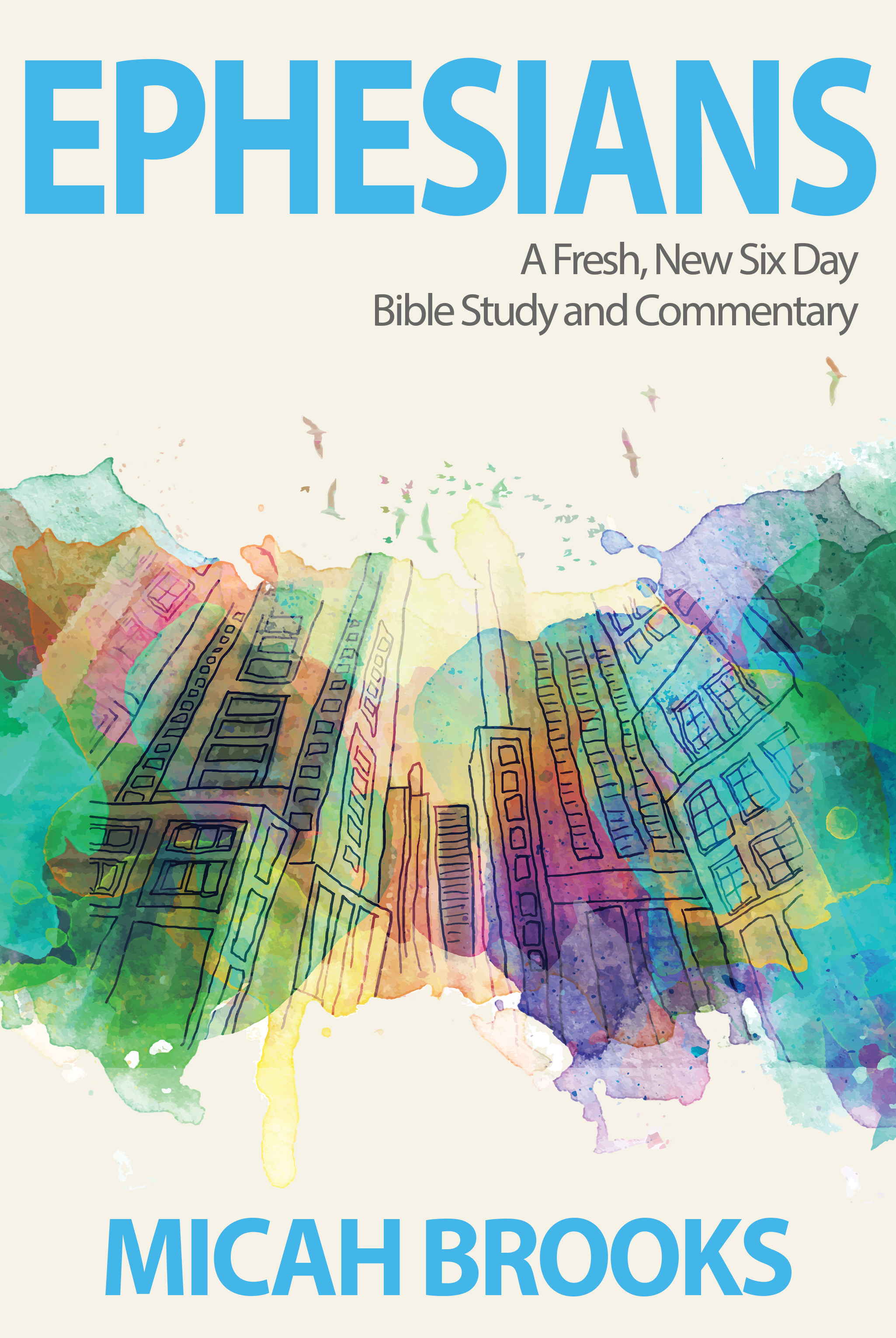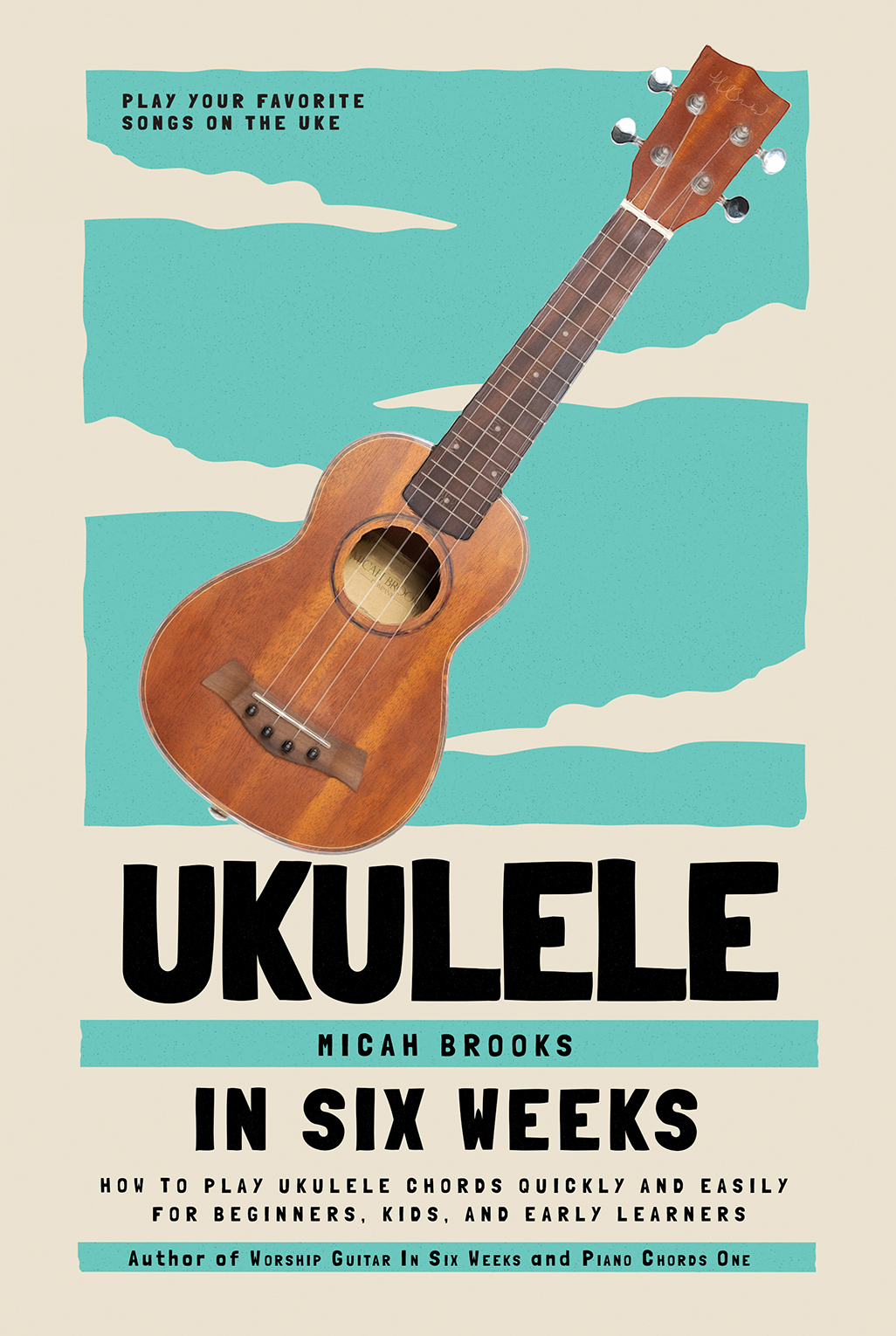Week Three: Day One
The Story
Anna grew up in a lower middle-class home where money was scarce and she learned very quickly to hold on to everything she had. If money came in it was for her pleasure and her pleasure only. Since it was rare she held tightly to it.
Matt grew up in an upper middle-class family where his father taught him to be generous and gracious with this money. Not only did Matt tithe ten percent on everything he earned, but he also learned to be generous by giving a little extra to those in need. He didn’t have a whole lot, but when he received a financial windfall he always made sure to help someone less fortunate. He didn’t do so because he saw those less fortunate as beneath him, but rather that he was the hand God was using to bring about the blessing. That is what his dad taught him early in life.
One morning, Anna pulled up to a traffic light where was she was the third car in line. She saw what seemed like a healthy young family with a husband, wife and their two kids, each under the age of five, begging at the stoplight. Immediately, she was disgusted that this father could bring his kids to this corner instead of finding a job for himself. In fact, she thought they looked very well off already so she decided in her heart she wasn’t going to be giving them any money. Inwardly, she had felt a desire to give but she quickly squelched it by her own prejudice about what these people were trying to get out of her.
Matt happened to drive down that road about midday. He saw the same family looking distraught. Something inside him said to give them $20. Matt was not accustomed to giving money to people on the street out of a fear of what they might do to him. Still, something inside Matt told him to give this family $20. Matt did.
He rolled down his window and said “Hey! I don’t know what’s going on here but here is $20. I hope you’ll get some food.” The family accepted the money. The light turned green leaving Matt no time to speak with them further.
You see, the Mortenson’s had just moved to town, having closed on their home the night before the big fire. They didn’t know anyone in the entire state except for their real estate agent whom they had found by looking at a real estate website. They couldn’t believe the devastation that had happened to their new home by an arsonist. The police would later label the incident a hate crime.
That night, just after the fire, they had prayed that someone would come to their aid. They knew that their first need was feeding their family the next day. Jack Mortenson felt something within him that said if they’d go stand on the street corner near their house, someone would provide money for a small lunch. Matt happened to be that gift-giver.
The next day was Saturday. Both Matt and Anna attended the same congregation and went to the Saturday evening service. They each could not believe their eyes as they saw this family, whom they had seen on the street corner not twenty-four hours earlier, come onto the stage with Pastor Richard. Pastor Richard began telling the story of God’s faithfulness in the Mortensons’ lives. They had lost everything in the fire, yet that they believed God would restore them. Their faith was confirmed through a stranger who gave them $20. They knew that it had to have been the Lord and that they would make it! The pastor said to the congregation, “You see, God provided through the generosity of one man. It was not everything they needed, but it was proof that God had his sights set on them. Though the struggle was real, his love was going to be even greater.”
The Devotion
2 Corinthians 9:6-7
“Remember this: Whoever sows sparingly will also reap sparingly, and whoever sows generously will also reap generously. Each of you should give what you have decided in your heart to give, not reluctantly or under compulsion, for God loves a cheerful giver.”
The Bible tells us, and makes it very clear, giving is to be a part of our daily lives. In fact, God gives us opportunities to give back to him regularly. In the passage above, he says he loves a cheerful giver. Shouldn’t all giving be cheerful? I’ll demonstrate how giving isn’t always cheerful through a little story using my four-year-old son.
When my boy has a play date with another one of his friends, inevitably one of his toys, which is the most precious thing in his life, is taken by the other kid. We tell him: “Buddy, you need to share with her”. Whenever he obliges, he does so rather reluctantly. At that moment, I can confirm he is not a cheerful giver.
Most of us aren’t four years old any more, but we may be able to relate. When we give our money in the form of tithes and offerings we want to hold tightly to it. It’s our hard-earned income after all, isn’t it?
Does God need money? Not hardly! He can tell you or me to go to the closest coy pond and look inside a fish’s mouth where we’d find some cash. So why is he concerned about what we call “our money”? Why does he require tithes and offerings?
First, it may be good to distinguish the difference between the words tithe and offering. A tithe is an antiquated term for “the first tenth” (that belongs to God). An offering is anything above and beyond that. In the first sentence, there were two important qualifiers, first and tenth. God is brilliant! He requires the first tenth because if we leave it to our last tenth we may be more hesitant to give it. However, if we draw off the first part, before anything else goes out, then we build our budgets as if it were never there in the first place. He asks for a tenth, but he could have asked for half. Don’t struggle with that one.
Some say that the tithe is an Old Testament concept. Well, did Jesus come to abolish or expand the law? I believe Jesus instituted giving to be a part of our daily lives, through offering, without demolishing the tithe.
Giving during a worship service could be the most authentic form of worship we use at church. Our music styles change often. They may or may not line up with the exact prescription for how God would like to be worshiped. The act of giving is just about the same as it was 2000 years ago. The denarius and the dollar are both forms of currency. They are both the basis of the tithe.
One of the best things you can do is to teach your children early about tithes and offerings. When they are older they may not struggle with giving as adults. Being generous is a beautiful and God ordained act.
I know this topic is a tough one. I also know that everything I have written above can be debated. I’d rather not debate with anyone, but would love to see everyone open to taking one more step in giving and being generous. Live life with an opened palm and not a closed fist.
The Bible
2 Corinthians 9 | Malachi 3 | Luke 12
The Prayer
“Dear Lord Jesus, You own the cattle on a thousand hills. You even own the hills, too! Please help me learn to hold loosely to the money that comes into my hands. May I always live a palms-open life, willing to share with anyone in need. Let me always have what I need and a little left over to share with others. I thank You that You care for me more than anything else that You’ve created. You certainly know how to give good gifts to Your children. I make a trust transfer today with You. I trust You to be Lord over my finances. I will not worry. In Jesus’ name, amen.”





